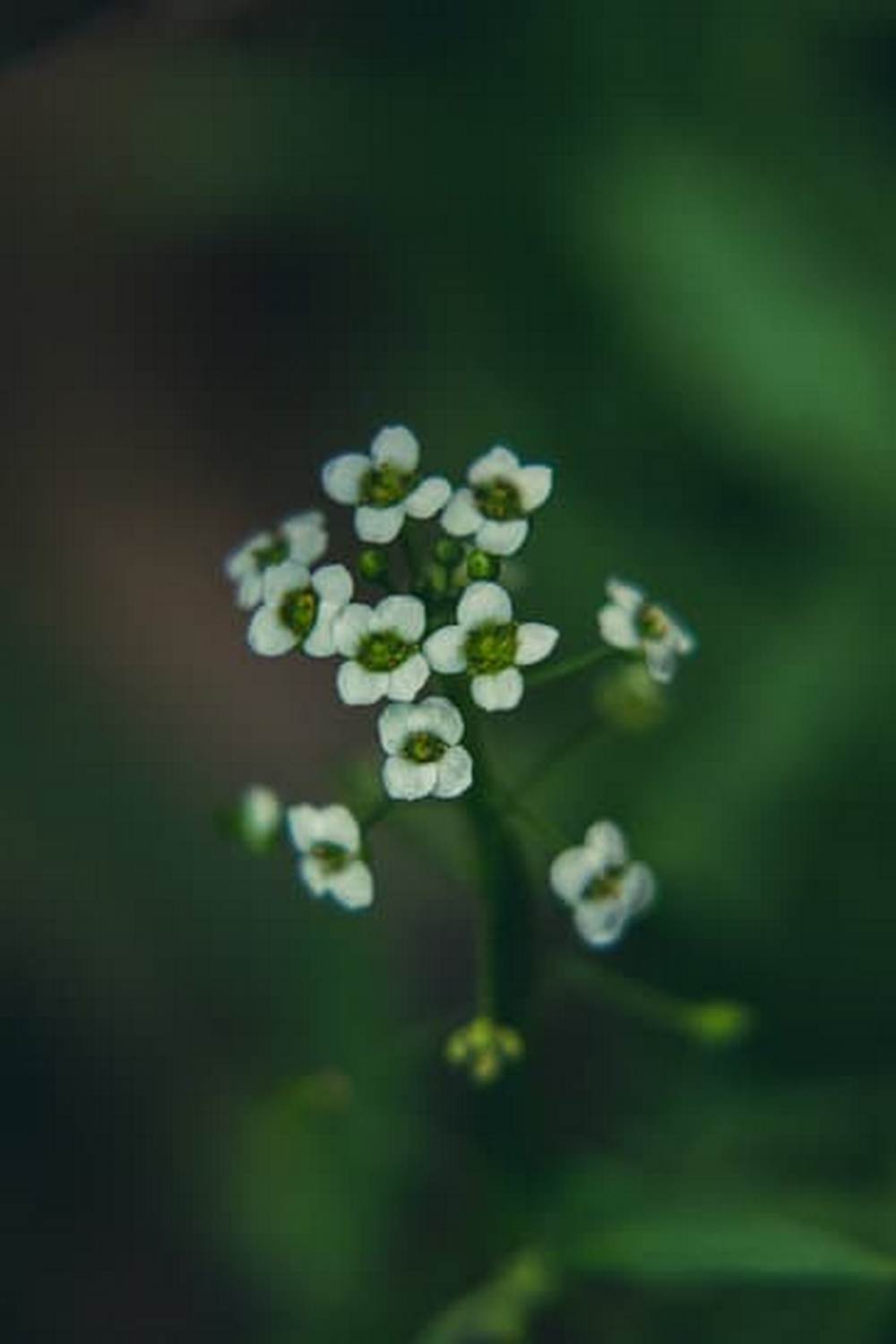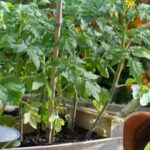Composting is a vital aspect of maintaining a healthy and productive vegetable garden. Understanding the different types of compost for vegetable gardens is essential for ensuring optimal growth and yield of your crops. Whether you are a seasoned gardener or just starting out, knowing how to utilize compost effectively can make a significant difference in the success of your garden.
Using the right types of compost for vegetable gardens provides numerous benefits, including improved soil structure, increased nutrient availability, and enhanced water retention. By incorporating compost into your gardening routine, you can create a sustainable environment for your plants to thrive. Manure compost, vermicompost, and leaf mold are some common types of compost that offer unique advantages for vegetable gardens.
Each type of compost offers distinct qualities that cater to different needs in the garden. Manure compost is rich in nutrients and helps improve soil fertility, while vermicompost created from worm castings promotes healthy root development. Leaf mold, on the other hand, enhances soil structure and aids in moisture retention. Understanding these variations allows you to choose the most suitable option for your specific gardening requirements.
Benefits of Using Compost in Vegetable Gardens
Compost is a valuable resource for vegetable gardens, providing numerous benefits that can enhance the health and productivity of your plants. One of the key advantages of using compost in vegetable gardens is its ability to improve soil structure. By adding compost to your garden beds, you can increase soil aeration, water retention, and nutrient availability for your vegetables. This leads to healthier root systems, better plant growth, and increased yields.
In addition to improving soil structure, compost also helps to promote beneficial microbial activity in the soil. These microorganisms play a crucial role in breaking down organic matter and releasing nutrients that are essential for plant growth. By incorporating compost into your vegetable garden, you can create a thriving ecosystem underground that supports the overall health of your plants. This can result in stronger resistance to pests and diseases, as well as improved nutrient uptake.
When it comes to choosing the right types of compost for vegetable gardens, there are several options available, each with its own set of benefits. Some common types include manure compost, vermicompost (worm castings), and leaf mold. Each type has unique characteristics that can cater to specific needs in your garden.
For example, manure compost is rich in nitrogen and other essential nutrients, making it ideal for promoting lush foliage growth in leafy greens like lettuce and spinach. On the other hand, vermicompost is known for its high levels of beneficial microorganisms and plant hormones that stimulate root development and flowering. Lastly, leaf mold can serve as an excellent mulch or soil conditioner due to its ability to retain moisture and suppress weed growth.
| Types of Compost | Main Benefits |
|---|---|
| Manure Compost | Rich in nitrogen; promotes foliage growth |
| Vermicompost | High levels of microorganisms; stimulates root development |
| Leaf Mold | Retains moisture; suppresses weed growth |
Different Types of Compost for Vegetable Gardens
When it comes to choosing the right compost for your vegetable garden, manure compost is a popular and effective option. Manure compost is created from animal waste, such as cow, horse, or chicken manure, which has been broken down into a nutrient-rich soil amendment. This type of compost provides a significant source of essential nutrients for your plants, including nitrogen, phosphorus, and potassium.
One of the key benefits of using manure compost in your vegetable garden is its high nutrient content. These nutrients are essential for healthy plant growth and can help improve soil structure over time. Additionally, manure compost helps to enhance soil fertility and promote beneficial microorganisms that contribute to overall plant health.
To effectively incorporate manure compost into your vegetable garden, consider mixing it into the soil before planting or using it as a topdressing around existing plants. Remember to allow the compost to fully mature and decompose before application to avoid burning your plants with excessive nutrients. Here are some ways you can use manure compost in your vegetable garden:
- Incorporate manure compost into raised beds or garden rows before planting
- Mix manure compost with potting mix for container gardening
- Use manure tea as a liquid fertilizer for watering your plants
By utilizing manure compost in your vegetable garden, you can provide your plants with essential nutrients while improving soil structure and fertility for optimal growth and productivity. Experimenting with different types of compost for vegetable gardens like manure compost can lead to healthier crops and bountiful harvests.
Different Types of Compost for Vegetable Gardens
Vermicompost, also known as worm castings, is a nutrient-rich organic fertilizer that is produced through the process of decomposition by earthworms. This type of compost is highly valued for its ability to improve soil structure, enhance nutrient levels, and promote overall plant growth in vegetable gardens. Vermicompost is a popular choice for organic gardening enthusiasts due to its numerous benefits and environmentally friendly production process.
One of the key advantages of using vermicompost in vegetable gardens is its high concentration of beneficial microorganisms and enzymes. These microorganisms work to break down organic matter into essential nutrients that are easily absorbed by plants, thereby promoting healthy root development and increased resistance to diseases and pests. In addition, vermicompost helps to retain moisture in the soil, reducing the need for frequent watering and creating a more stable growing environment for vegetables.
When selecting vermicompost for your vegetable garden, it is important to choose a high-quality product that has been properly processed and aged. Look for vermicompost that is dark brown in color with a crumbly texture, as this indicates a mature compost with optimal nutrient levels.
Avoid using fresh or unfinished vermicompost, as it may contain harmful pathogens or phytotoxic substances that can harm your vegetable plants. By incorporating vermicompost into your gardening routine, you can enjoy the many benefits of this natural fertilizer while promoting sustainable practices in your vegetable garden.
Different Types of Compost for Vegetable Gardens
Leaf mold is a valuable type of compost that can greatly benefit vegetable gardens. Made from decomposed leaves, leaf mold is rich in nutrients and helps improve soil structure. It also acts as a natural mulch, helping to retain moisture and suppress weed growth in the garden.
Here are some key benefits of using leaf mold as a compost for your vegetable garden:
- Enriches soil with essential nutrients such as potassium, phosphorus, and magnesium
- Improves soil texture by increasing its ability to retain water and nutrients
- Promotes beneficial microbial activity in the soil, supporting healthy plant growth
One of the advantages of leaf mold compost is that it is relatively easy to create at home. You can start by collecting fallen leaves from your yard or neighborhood during the fall season. Pile up the leaves in a designated area, keeping them moist but not soggy. Over time, the leaves will decompose into nutrient-rich leaf mold that you can use to amend your vegetable garden soil.
When using leaf mold compost in your vegetable garden, it’s important to apply it evenly across the planting area and gently work it into the top few inches of soil. This will ensure that the nutrients are readily available to your plants’ roots.
Additionally, consider adding a layer of leaf mold on top of the soil as mulch to help conserve moisture and suppress weeds throughout the growing season. By incorporating leaf mold into your gardening routine, you can promote healthier plants and bountiful harvests in your vegetable garden.
DIY Composting Methods for Vegetable Gardens
Composting is a natural process that transforms organic waste into nutrient-rich soil additives that can benefit vegetable gardens in numerous ways. By creating your own compost at home, you not only reduce the amount of waste sent to landfills but also provide your plants with essential nutrients they need to thrive. There are several DIY composting methods that you can easily implement in your vegetable garden.
Traditional Composting Bin
One of the most common DIY composting methods is using a traditional composting bin. You can purchase a ready-made bin or create one yourself using materials like wood pallets or wire mesh. Simply layer brown materials (such as dried leaves, straw, or cardboard) with green materials (such as kitchen scraps, grass clippings, or coffee grounds) to create a balanced mix for decomposition. Regularly turn the pile to aerate it and speed up the composting process.
Trench Composting
Trench composting is another simple yet effective method for creating compost in your vegetable garden. Dig a trench directly into the soil and fill it with layers of kitchen scraps, yard waste, and other organic materials. Cover the trench with soil and allow the compost to decompose over time. This method not only enriches the soil but also helps improve drainage and moisture retention in your garden beds.
Bokashi Composting
For those who have limited space or live in urban areas, Bokashi composting is a convenient option. This anaerobic fermentation process uses specialized Bokashi bran to ferment food scraps in an airtight container. Once fully fermented, the material can be buried directly in the soil where it will continue to break down and enrich the earth. Bokashi composting is odorless and ideal for apartment dwellers or those looking for an indoor composting solution.
Implementing these DIY composting methods in your vegetable garden can help you create high-quality organic matter to nourish your plants and improve soil health. Experiment with different techniques to find what works best for your space and resources, ensuring that you choose the right types of compost for vegetable gardens based on your specific needs and goals”.
How to Use Compost in Vegetable Gardens for Optimal Growth
Using compost in vegetable gardens is a great way to improve soil health and fertility, ultimately leading to optimal growth of your plants. Incorporating compost into your gardening routine can provide essential nutrients, retain moisture, and promote beneficial microbial activity in the soil. Here are some key tips on how to effectively use compost in your vegetable garden for maximum results.
Incorporating Compost Into Soil
Before planting, it is crucial to mix compost thoroughly into the existing soil. Aim to incorporate compost at least 6-12 inches deep into the soil to ensure that the roots of your vegetables have access to the rich nutrients provided by the compost. This will help create a healthy and nutrient-rich environment for your plants to thrive in.
Top Dressing With Compost
Once your vegetables are planted, you can continue to use compost as a top dressing throughout the growing season. Simply apply a thin layer of compost around the base of your plants, being careful not to smother them. This top dressing will slowly release nutrients into the soil as it breaks down, providing continuous nourishment for your crops.
Making Compost Tea
Another effective way to use compost in your vegetable garden is by making compost tea. This liquid fertilizer is created by steeping compost in water and can be used as a foliar spray or root drench for your plants.
Compost tea helps improve nutrient uptake, strengthen plant resistance against pests and diseases, and enhance overall plant health. By incorporating these methods into your gardening routine, you can harness the power of different types of compost for vegetable gardens to achieve optimal growth and bountiful harvests.
Troubleshooting Common Composting Issues in Vegetable Gardens
Composting is a fantastic way to enrich the soil in your vegetable garden and promote healthy plant growth. However, like any gardening practice, it can come with its own set of challenges. Troubleshooting common composting issues can help you address problems that may arise and ensure that your compost is working effectively.
One common issue that vegetable gardeners face when composting is a foul odor emanating from the compost pile. This unpleasant smell can be caused by an imbalance of green materials, such as kitchen scraps, and brown materials, like dried leaves or paper.
To remedy this issue, make sure to add equal parts of green and brown materials to your compost pile and turn it regularly to aerate the pile. Adding some garden soil or finished compost can also help introduce beneficial microorganisms that aid in the decomposition process.
Another common problem in composting is the presence of pests, such as flies or rodents, attracted to the compost pile. These pests are often drawn to food scraps in the compost. To deter pests, avoid adding meat or dairy products to your compost and cover kitchen scraps with a layer of brown material. Additionally, turning the pile regularly will help discourage pests from taking up residence in your compost heap.
In addition to addressing these common issues, it’s essential to monitor the moisture level of your compost pile. Compost should be damp, but not waterlogged. If your compost is too dry, it will decompose slowly. On the other hand, if it’s too wet, it may develop a slimy texture and emit a foul odor. Adjusting the moisture content by adding water or additional dry materials can help maintain an optimal environment for decomposition.
| Common Composting Issues | Troubleshooting Tips |
|---|---|
| Foul Odor | Add equal parts green and brown materials, aerate the pile regularly |
| Pests | Avoid meat/dairy products in compost, cover kitchen scraps with brown material |
| Moisture Imbalance | Adjust moisture level by adding water or dry materials as needed |
Conclusion
In conclusion, choosing the right type of compost for your vegetable garden is crucial in ensuring optimal growth and productivity. Each type of compost – whether it be manure compost, vermicompost, or leaf mold – offers unique benefits and nutrients that can enhance the health of your plants. By understanding the characteristics of each type of compost and how they can benefit your soil, you can make an informed decision on which one to use in your garden.
When selecting a compost for your vegetable garden, consider factors such as the nutrient content, pH levels, and texture that will best suit the needs of your plants. Manure compost, for example, is rich in nitrogen and can help promote vigorous growth. Vermicompost, on the other hand, is teeming with beneficial microbes that can improve soil fertility. Leaf mold provides a gentle boost of nutrients and helps improve soil structure.
Ultimately, the key to successful gardening lies in experimenting with different types of compost to see which works best for your specific needs. Whether you choose to purchase pre-made compost or create your own through DIY methods, incorporating this natural soil amendment into your gardening routine will greatly benefit the health and vigor of your vegetable plants.
By choosing the right compost for your vegetable garden, you are taking a proactive step towards creating a sustainable and thriving growing environment for all your favorite crops.
Frequently Asked Questions
What Compost Is Best for a Vegetable Garden?
The best compost for a vegetable garden is well-rotted compost that is dark, crumbly, and has a pleasant earthy smell. This type of compost provides the necessary nutrients for vegetables to thrive while also improving soil structure and drainage.
Can You Use Any Compost for Vegetables?
While any type of compost can be used for vegetables, it is important to ensure that it is fully decomposed before applying it to the garden. Unfinished compost may contain pathogens or phytotoxins that could harm the vegetable plants. Additionally, avoid using compost made from materials like treated wood or animal manure high in salts.
Can You Put Too Much Compost in a Vegetable Garden?
It is possible to put too much compost in a vegetable garden, which can lead to nutrient imbalances and waterlogging of the soil. Excessive organic matter can prevent proper root development and inhibit the uptake of essential nutrients by plants. It’s best to follow recommended guidelines for adding compost based on your specific soil type and vegetable crops.

If you’re looking to get into vegetable gardening, or are just looking for some tips on how to make your current garden better, then you’ve come to the right place! My name is Ethel and I have been gardening for years. In this blog, I’m going to share with you some of my best tips on how to create a successful vegetable garden.





